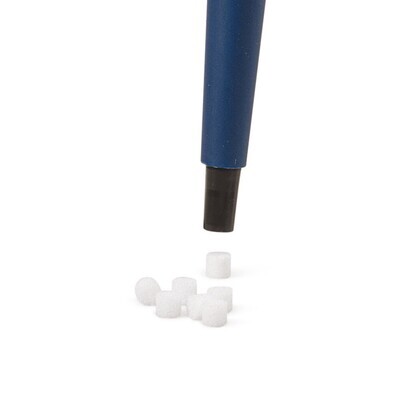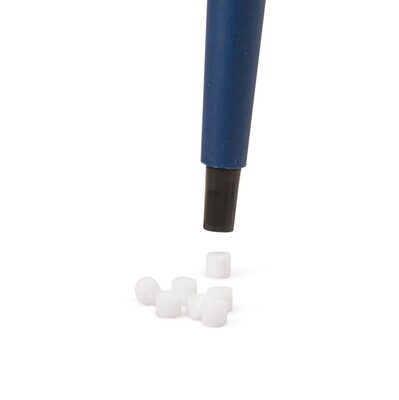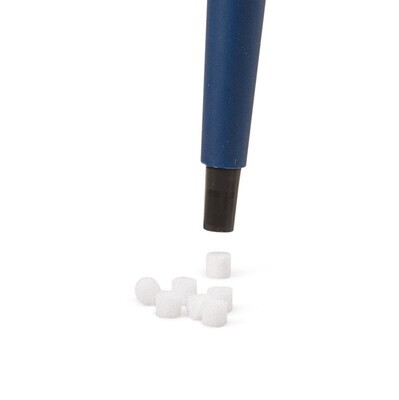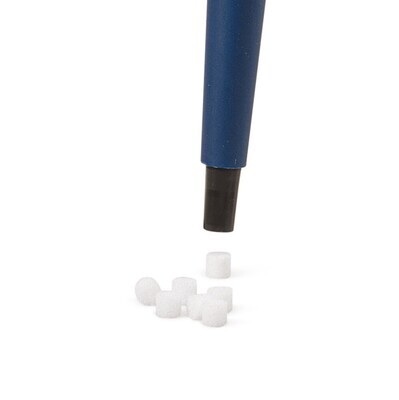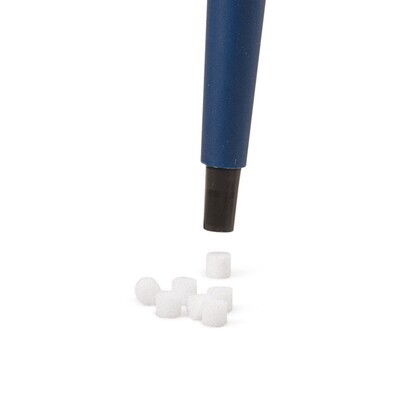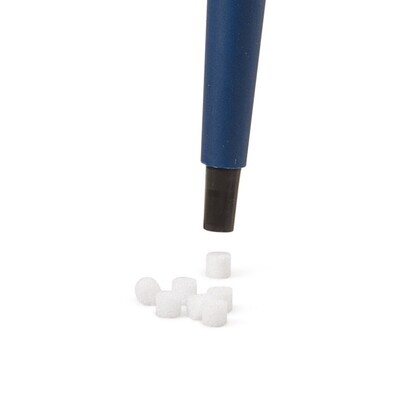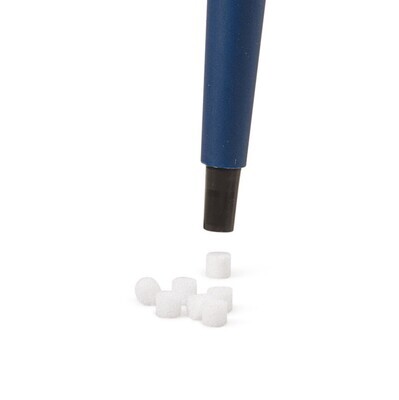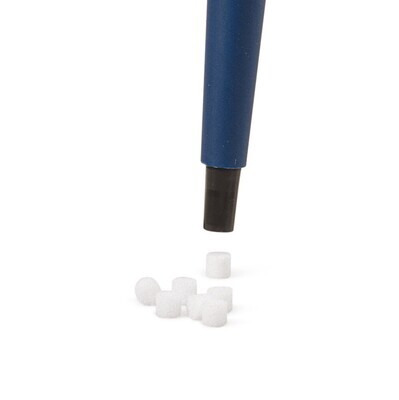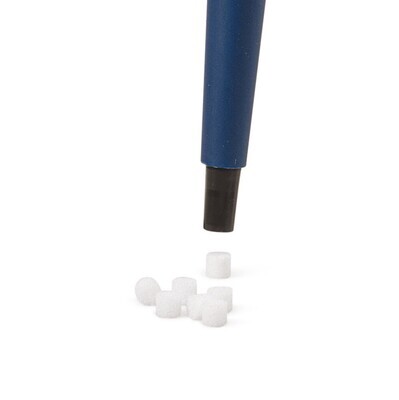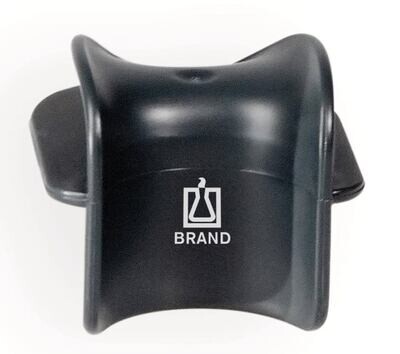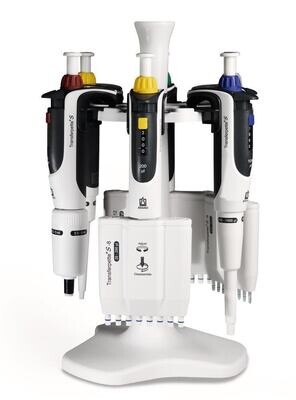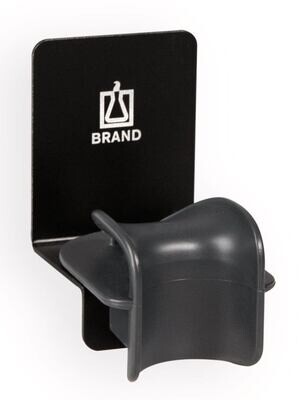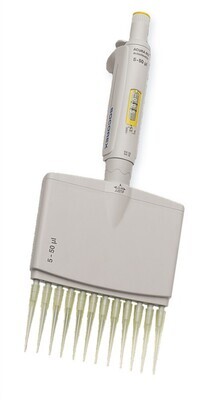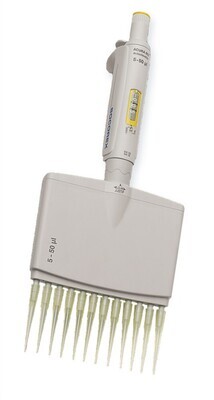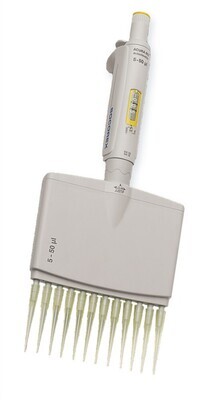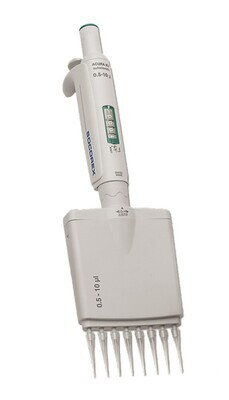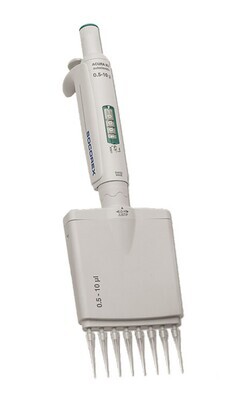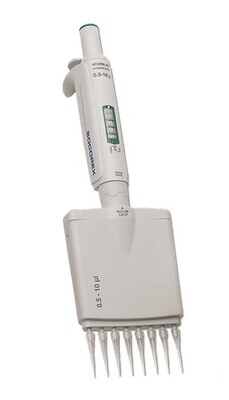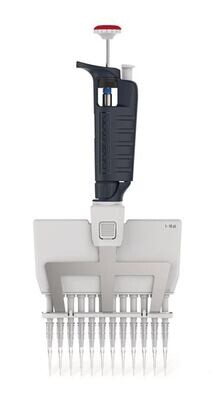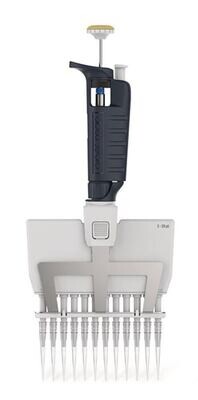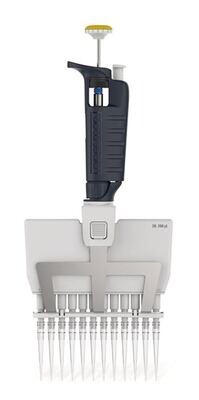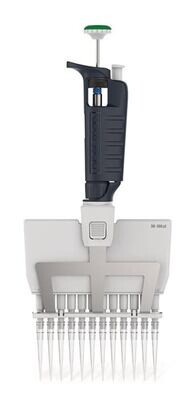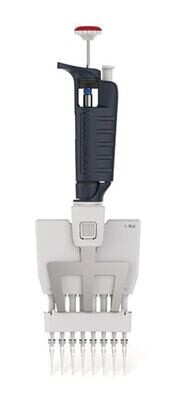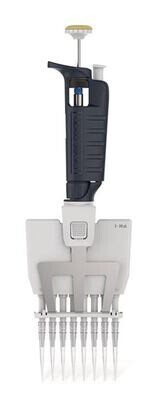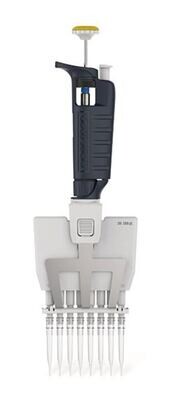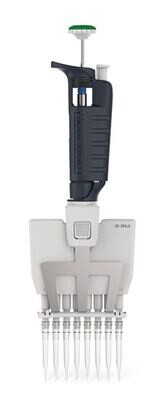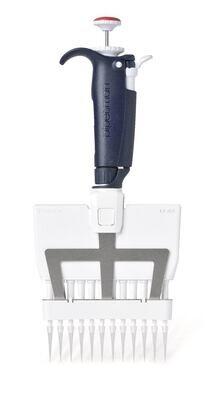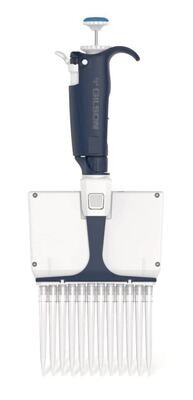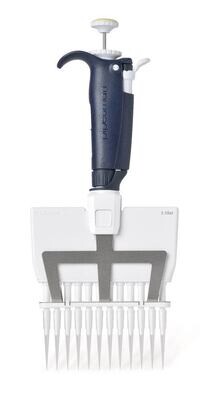Microliter pipettes
Microliter pipettes are essential laboratory instruments and are used to accurately measure and transfer small amounts of liquids. These pipettes are designed to measure microliter volumes (typically between 0.1 μl and 1000 μl) and are critical for various applications such as DNA analysis, protein research, cell culture and many other laboratory procedures. A microliter pipette consists of a piston mechanism connected to a fine end, also called a pipette tip. By moving the plunger up and down, the user can draw in the desired amount of liquid and then accurately transfer it to another vessel. This makes it possible to manipulate very small amounts of liquid with high precision and reproducibility. The use of microliter pipettes offers several advantages over other measurement methods, such as the use of glass pipettes or syringes. First, microliter pipettes can measure very small volumes, saving valuable reagents. In addition, they are easy to use and require no special skills or training. This makes them ideal for both experienced laboratory professionals and beginners. Another advantage of microliter pipettes is that they are available in different sizes and models, making them suitable for different applications. For example, there are single-channel pipettes that are ideal for measuring one sample at a time, and multi-channel pipettes that make it possible to measure multiple samples at the same time. This saves time and increases efficiency in the laboratory. When choosing a microliter pipette, it is important to take several factors into account, such as the desired measurement accuracy, the volume range and the ergonomics of the instrument. For example, some pipettes have an adjustable volume knob, which allows the user to set the desired volume, while other pipettes have a fixed volume. It is also important to replace the pipette tips regularly to prevent contamination and ensure the accuracy of measurements. Pipette tips are available in a variety of materials, such as polypropylene and filter tips, and should be chosen based on the specific application. In short, microliter pipettes are indispensable instruments in laboratories for accurately measuring and transferring small amounts of liquids. They offer high precision, reproducibility and efficiency, making them ideal for various applications. By choosing the right pipette and performing regular maintenance, laboratory professionals can rely on the reliability and accuracy of their measurements.
Refine by
Powered by Lightspeed
Display prices in:EUR




















